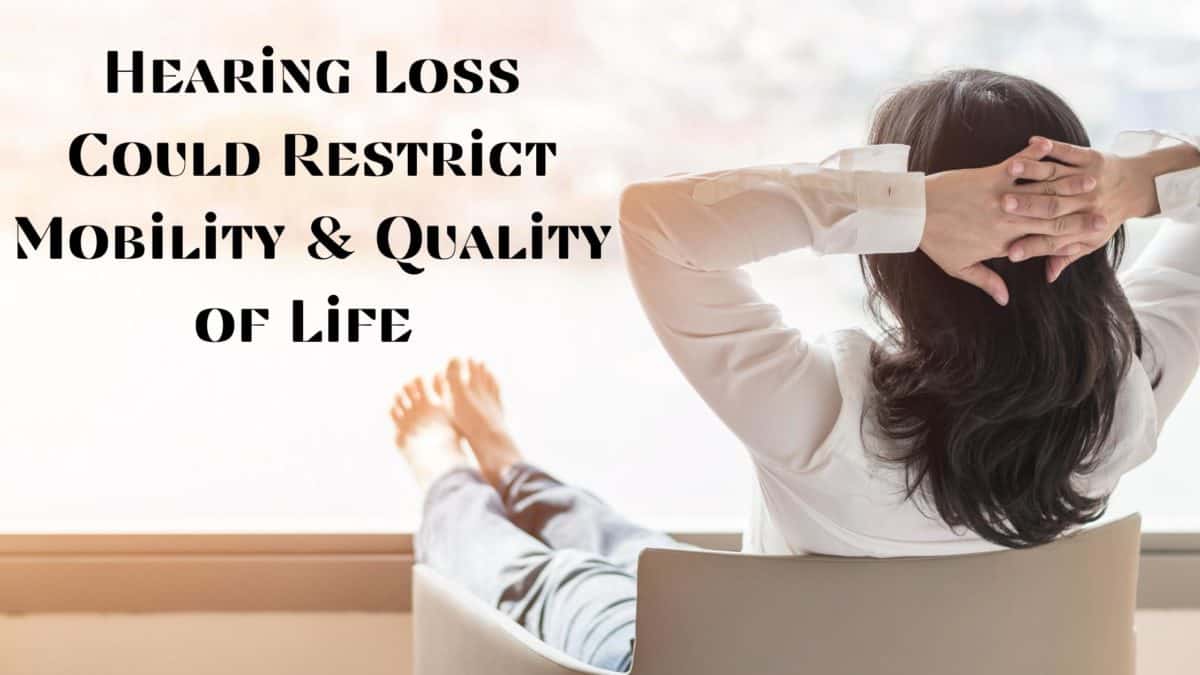- The Connection Between Hearing Loss and Dementia - July 30, 2024
- The Advantages of Rechargeable Hearing Aids - July 16, 2024
- How to Enjoy Music Festivals While Protecting Your Hearing - July 3, 2024
Hearing loss is one of the leading chronic health conditions in the United States. Approximately 91% of people with hearing loss are over the age of 50, as age remains the strongest predictor of challenges to hearing. Seniors are also likely to suffer from depression due to loss of mobility, an issue we now know is linked with hearing loss.
As we continue to invest in ways to make people in older demographics feel more connected to life, intervening in hearing loss may be one way to add vibrancy and increased quality of life.
Why hearing loss is linked with aging
Although people can lose their hearing at nearly every stage of life, it predominantly affects people in older demographics. One-third of people over the age of 65 have some type of hearing loss. More than half of people who’ve blown out the candles on their 85th birthday cake deal with this issue.
The culprit is most likely the natural aging process, an unavoidable outcome of getting older. Our hearing is dependent upon fine, highly functioning hair cells located within the inner ear. These cells are responsible for receiving noise from the external world. They convert it into sound information that is sent to the brain via the auditory nerve.
Over time, these hair cells are damaged or decay. In some cases, they’re harmed by exposure to excessive noise over one’s lifetime (so turn down your earbuds). They are non-regenerative, which means they don’t repair themselves or reproduce new cells. Instead, we simply begin to hear less.
Study links hearing loss to loss of mobility
It stands to reason that people with hearing loss, particularly untreated, also face a loss of mobility. As humans, we naturally seek out circumstances that feel easier and more comfortable. As hearing loss progresses, it can make simple activities like visiting the store or gathering with friends and family feel challenging and frustrating.
A symptom of hearing loss that is often reported is a sense of isolation. Over time, people with hearing loss avoid frustrating communication scenarios to the point in which they begin to withdraw from life. This is exemplified by their loss of mobility.
A medical study found that seniors who display hearing loss are more than twice as likely to constrain movement to limited areas near their homes. In conclusion, the study noted the loss of mobility on their perceived wellbeing. “In our recent studies, we’ve observed that older people with hearing problems have more limited living space and that these problems lower their quality of life,” says Hannele Polku, the study’s author.
Other adverse effects of undiagnosed hearing loss
In addition to feelings of isolation and loss of mobility, hearing loss can have other detrimental effects on social, emotional, and mental health. People with hearing loss are also more likely to suffer from moderate to severe depression.
As human beings, we are wired for connection. Hearing loss is an issue that fundamentally changes the way we can interact with each other, particularly when that change comes later in life. Relationships suffer and self-esteem declines.
Scientists are also learning more every day about the connection between untreated hearing loss and cognitive disorders like dementia and Alzheimer’s Disease. Now, healthy hearing and subsequent treatment are listed among the important steps to take for preventing dementia.
Ways hearing aids can help
Hearing aids can help people live vibrantly despite hearing loss. Most people who choose hearing aids report improved relationships and would recommend them to a friend who is facing hearing loss.
What hearing aids can offer that most impacts a person’s quality of life is by introducing a sense of ease back into listening and communicating. This makes the conversation less effortful so that people have fewer reasons to self-isolate and withdraw from life.
The mere act of acknowledging and confronting hearing loss may even help boost people’s self-esteem and give them a sense of control which can dissipate feelings of depression.
Schedule a hearing test today
The first step in confronting hearing loss is scheduling a hearing consultation. Our team of hearing health professionals will guide you through the easy and painless process of a hearing exam. From there, we can determine if you are a good candidate for hearing aids or other treatments.

